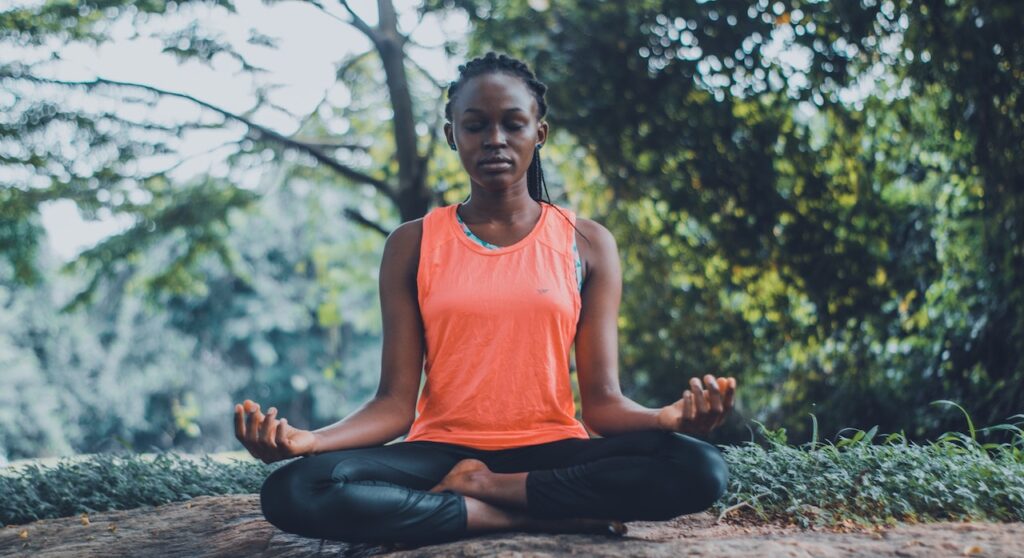
Written by Marie Miguel, Guest Writer
Your mental health is important. With the pandemic still in full swing, it’s very hard to keep it all together. But what if there was a way for you to boost your mental health? Well, there is. There are certain wellness tips that will help you not only improve your mental health and fortitude, but also to improve your confidence, security, and happiness too.
1. Start Using Positive Affirmations
Positive affirmations are a great way to help boost positivity and is a valid way to learn to love yourself.
Positive affirmations are little nuggets of positivity, popularized by Louisa Hay, that can be used for everything from your health and wellness, to even your finances and production. This helps you keep a positive mindset, and it can boost your mental health immensely.
Think about it, how do you feel when you approach life with a more positive mindset. Part of the reason why this works is it’s an action you take daily to encourage a positive mindset, and of course before you can even start on the road to positivity, you’ve got to have the right mindset.
You can take these positive affirmations and write them down, putting them in a place that you see a lot. For example, putting them on the fridge is a good place to start, since you’ll see that every single day. Begin to say these, and even if you don’t believe it immediately, it will start you on the road to positivity and wellness, in ways you never dreamed.

2. Use Yoga to Relax
Yoga is a great way for both men and women to relax. In fact, it’s an incredibly healthy means to help build wellness, flexibility, and good for relaxing.
Yoga helps to naturally reduce stress in the body, and it’s a natural stress reliever. If you have back pain and other muscle issues, yoga is a great thing for you to do. Yoga also keeps you calm and focused.
While it is encouraged to do at least 150 minutes of exercise a week to feel healthy and boost your mental wellness, yoga is one of the best ones for anxiety and stress. Think about it, holding yourself in positions, using focused breathing, and also just relaxing is a great way to boost mental health and wellness, and is probably one of the best ways for you to do so.
If you’re someone who doesn’t like working out either or heavy exercise, this can give you the same benefits as strenuous exercise in some cases. It makes you more limber and flexible, and it can help reduce the instances of injury, which is especially good if you’re at risk for injuring yourself due to work activities or age.
Yoga is one of the best exercises for mental health, and it’s an exercise that you should consider using especially if you’re always stressed out and need a way to not just relax, but to take the load off after a busy, stressful day.

3. Get Help When Needed
Your mental health and wellness are very important, especially if you’re struggling during these rough times.
Depression and suicide rates are getting higher due to the nature of not just the pandemic, but life in general. There is no shame in getting help either.
Some people have feelings that they don’t understand, and getting help is a valid way to better understand not just your feelings, but how to approach practically anything.
You can take a mental illness test too help you figure out exactly what it is that’s going on, so you can do something about it.
You can learn what’s going on inside your head, but also it can help you get help that you need, especially when you’re unsure of what to do about things.
The uncertainty of life is hard to face on your own, and for some people, getting help is the best thing for them. Seeing a therapist or a means to get mental health assistance is important, and getting help when needed is a surefire way to improve your life, and make things better for you not only in the temporary state of things, but also down the road if things get tougher for you as well.

4. Eat Healthy
What kinds of foods are you eating? Probably not the best ones.
Well, eating healthy has proven to boost your mental health and wellness just a little bit.
Think about how you feel after eating like garbage for a period of time. If you’re eating only unhealthy foods and not eating good foods that encourage health and wellness, it can make you feel terrible.
While this isn’t a surefire way to completely reverse any mental illness or problems you face, it’s a good way to fortify yourself and improve on yourself in an existing state.
It’s good to have whole grains and healthy fruits and vegetables. Reduce your sugar intake as much as you can, and start eating foods that are whole and filling. Try to avoid fried foods, and limit eating out to more special occasions.
While this isn’t a magical way to fix your mental health, this is one of those wellness tips that you can utilize to not just improve your body, but also your mental health too. You’ll eat better, feel better, and when you look and feel better it imbues positivity and confidence, which is of course something that helps when the going gets tough.
You don’t have to use a fad diet or anything either. Even just eating right and eating less junk food can improve your mental outlook, and change the way that you feel.

5. Get Some Sleep
Sleep is important, especially for your mental health and wellness.
How did you feel the last time you slept poorly? Were you irritable and cranky? Did you notice that you were a bit more reactive and stressed?
One of the best ways to improve your health and wellness is of course to sleep better.
On average, you need about 7-9 hours of sleep if you’re over the age of 20. Sleeping is important because it helps repair the body and boost wellness. If you’re not getting enough sleep, your body won’t be able to make the proper repairs that it needs to in order to improve your health and wellness.
It is important that you get quality sleep too. Broken-up sleep isn’t as good because your body hasn’t moved to the REM state, which is where they process the information from the day before, and it helps with healing the body and promoting wellness. You should make sure that you provide quality sleep to yourself.
The best way to do this is to put together a ritual before bed, and maintain it.
Refrain from using blue light screens from your smartphone before bed, or turn the blue light filter on. Blue light does affect your mealtime production, which can affect sleep quality.
You should start using different activities to wind down during the middle of the night, such as relaxing and maybe reading an easy book.
Sleep is one of the few things you can provide to your body that’s easy to maintain and fix, and if you get quality sleep, it will help you improve your health and wellness, both mentally and physically.

6. Deep Breathing—Why it Matters
Deep breathing is really good for you.
Deep breathing activates your vagus nerve, which can be used to help reduce the presence of actions caused by the sympathetic nerve.
Your vagus nerve helps you relax, and it can reduce symptoms of anxiety in the body.
When you breathe in deep, you’re naturally providing more air to the body, which helps to oxygenate the cells, is good for your heart rate, and provides quality respiration.
It also is good if you feel like you’re about to blow a gasket and need to calm down.
The best way to do it is to take a breath that is nice and slow. Start from your diaphragm and breathe out, and you should notice your belly expand when you do this.
Short breathing doesn’t provide this, and it can actually cause syncope if you have too much anxiety and stress.
Instead, just take a deep breath in, and then out, and proceed to breathe like this. Sometimes you can do this while having your eyes closed or breathing in deeply, and this form of breathing is healthy for you to engage in, and good to do.
It’s recommended to use this when you feel stressed out, since it will keep you grounded, focused, and help reduce symptoms of anxiety.
Breathing is a simple activity, but the wellness benefits which stem from this are unlike any thought possible, and it’s good to just breathe sometimes to not only relax, but to feel better too.

7. Consider a Gratitude Journal
How much gratitude do you show every single day?
Maybe not enough.
Gratitude is a great thing because it makes you focus on what you have in life, and allows you to be thankful for everything that you’ve had each day.
A gratitude journal also helps you feel grateful for everything that you currently have, and stops you from feeling jealousy and negative emotions. After all, you’re grateful for what you’ve got, and you’re not worried about what you don’t have.
It is a good way to also focus on how fortunate you are. This is a good way to evoke positivity. Think about it, in this world it’s very easy to focus on what you don’t have, but what if you spent a bit more time on what you have.
Chances are it will put you into a different perspective, and it will change the way that you feel. This is a great way to improve your mental health and well-being, and it’s a great way to really see what the state of your life is, and what you have in life.
You can use any old journal to write in, but focus on making sure it stays in the realm of gratitude and being grateful.
Sometimes a little bit of gratitude will go a long way, and a lot of people don’t realize how important this is for you to engage in, and of course the effects that gratitude can have on your mental health and wellness too.

8. Talk to Someone for at Least 10 Minutes a Day
Why is talking to someone so important?
Well for starters it stimulates the brain. In fact, it can improve your memory scores. Talking to people helps you get out of your shell, can help your brain work better, and it makes you feel better.
Connecting with others also boosts serotonin levels, which is the happy hormone that makes you feel good. Serotonin also reduces instances of depression in the body too.
So yes, talking to friends, family, or people you’re not familiar with is good for you. Talking to them and interacting is a good thing, and it can improve your own personal health and wellness as well.
Even just saying hello to strangers is a way to connect with others, and it can make you feel good. If you focus on the quality of your communication too, it will help you immensely. Having deep connections with others and supportive relationships, it can improve your body, mind, and wellness too.
Talking gets you out there, and even if you can’t see someone in person, talking to someone over the phone or voice chat is a good way to make you feel good, and it can help improve your body and mind too. A lot of people don’t realize how important talking is, but by doing so, it can change your life, and make you so much happier as well both as a temporary means, but also as a long-term means too.

9. Give Your Brain a Mental Workout!
Giving your brain a workout is good for it. It also can help shift stress away and also help you feel good and calm.
A mental workout is great because not only does it prevent dementia and keep the brain active, it works to improve your mental health and wellness too.
It reduces stress, and lets you use different circuits in the brain, which you may not normally do. Plus, it’s a form of distraction, which is of course an essential part of improving your life too.
The tedium and boredom of life isn’t good for anyone, and it can be really good for you if you start to improve your body and mind by simply doing something different. It keeps you active, happy, and you’ll feel a lot better too.
Your mental health is definitely benefited by doing something different. Change can be scary, but a lot of people do benefit from changes more than one may think, and giving your brain the right workout is essential to having a happier, healthier life.
Think about the different ways you can challenge yourself. It also boosts confidence, and it will help you feel good, especially if you’re stressed about life, or are suffering from depression due to feelings of sadness or inadequacy that come with the way life can be sometimes. It’s a good way to not just get away for a bit, but also to evoke feelings of health and wellness and improve your happiness too.

10. Laugh More, it’s the Best Medicine!
Finally, one way to improve your mental health and wellness, is to laugh more.
Laughter is something a lot of us should do more often, but plenty of times we don’t. But, laughter releases serotonin, and it can stimulate your neurotransmitters, helping to alleviate feelings of depression in many people.
Of course this isn’t a substitute for actual therapy and mental health, but it is good to take a bit of time to just laugh. It helps relieve stress, and it makes you feel happier too.
It may seem strange, but when you start to force yourself to find something to laugh at, over time you’ll inevitably find something to laugh about. This can be a bit jarring and scary for some people, but learning too laugh not just at yourself but at different things is healthy, and it keeps your circuits properly maintained and healthy.
So if you haven’t laughed in a bit, try to find something to laugh about, and just laugh. Don’t be afraid if people hear you or you don’t, but instead, take some time and really focus on improving your health and wellness. It also is a way to naturally relieve stress too, so laughing in the face of stressful ordeals is actually quite healthy, and a great thing for you to do especially if you feel like you haven’t laughed in a long time.
These are some helpful wellness tips that can help with improving the reward and pleasure centers, and also helping to promote proper mental health. While treatment and therapy are highly encouraged, especially when things get bad, making changes to your life to evoke more positivity is something you should most definitely do. Part of the responsibility for your mental health is taking care of it, and with these tips, you’ll be able to manage your health and wellness effectively and easily despite the challenges that come your way, and you’ll be able to meet them head-on and in a much more positive manner.
About the Author
Marie Miguel has been a writing and research expert for nearly a decade, covering a variety of health- related topics. Currently, she is contributing to the expansion and growth of a free online mental health resource with Mind-Diagnostics.org. With an interest and dedication to addressing stigmas associated with mental health, she continues to specifically target subjects related to anxiety and depression.






Leave a reply